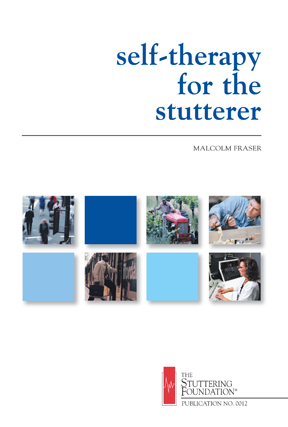An excerpt from the book Self-Therapy for the Stutterer by Malcolm Fraser
 Many stutterers have mistakenly believed that if only the “cause” could be found, a fast cure would result. Many theories have been advanced to explain the nature and causes of stuttering, but none of them has been proven at this time.
Many stutterers have mistakenly believed that if only the “cause” could be found, a fast cure would result. Many theories have been advanced to explain the nature and causes of stuttering, but none of them has been proven at this time.Considerable research is being carried out to investigate possible neurological involvement,1,2 dominance of one cerebral hemisphere over another, and any factors which may cause a lack of speech muscle coordination resulting in stuttering. Hereditary factors also play a role in some people who stutter.3
Whatever the cause or causes, you need to be concerned about what you are doing now that perpetuates and maintains your difficulty, not about what happened in the past.4 There is no reason for you to spend the rest of your life stuttering helplessly. You can gain confidence in your ability to communicate freely. Others have prevailed, and so can you.
1 Recent evidence from brain imaging studies provides a coherent albeit preliminary view that stuttering occurs when a neurophysiologic system...fails. (Watson)
2 Any differences between stuttering and non-stuttering speakers involve not only brain regions involved in motor planning and execution, but also those areas important for processing of sensory feedback. (De Nil)
3 Inheritance clearly plays a role in some cases of stuttering. Ongoing studies of individuals in stuttering families give us important information about the causes of stuttering. (Drayna)
3 Kang, C., Riazuddin, S., Mundorff, J., Krasnewich, D., Friedman, P., Mullikin, J., and Drayna, D. Lysosomal Enzyme Targeting Pathway Mutations and Persistent Stutterng. New England Journal of Medicine Volune 362 pp.677-685 (2010).
4 Many stutterers have mistakenly believed that if only the “cause” could be found, a fast cure would result. (Murray)






 Podcast
Podcast Sign Up
Sign Up Virtual Learning
Virtual Learning Online CEUs
Online CEUs Streaming Video Library
Streaming Video Library